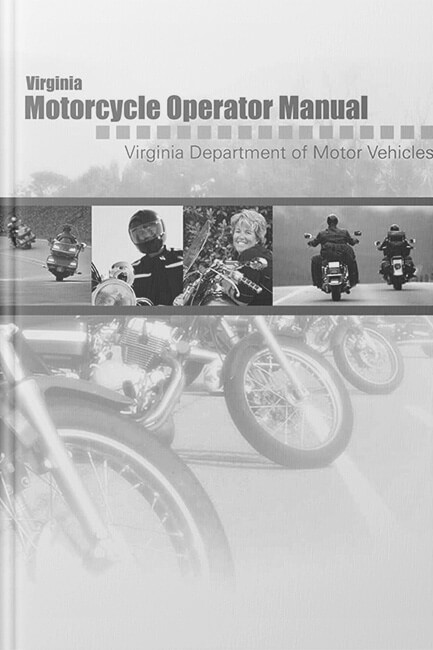Virginia Motorcycle Manual Driver's Manual
To make studying easier, the Virginia DMV handbook 2025 edition is available in multiple languages and comes with an audio version. Get interactive support with our AI assistant to clarify any complex terms.
Select your language
Virginia Motorcycle Manual Online 2025
It’s no secret that operating a motorcycle requires special knowledge and skills.
After all, motorcycling brings with it numerous risks and hazards, many of which drivers of four-wheeled vehicles don’t need to think about. However, the Virginia Department of Motor Vehicles (DMV) enforces strict requirements and regulations for operating a motorcycle. As long as you follow the procedures outlined here, you can be sure that you’ll develop the skills and knowledge necessary for safe, responsible riding.
Virginia Motorcycle Operating Manual
The most important resource you can get your hands on is the Virginia Motorcycle Operator Manual, which has been designed by the Virginia DMV for beginners and experienced riders alike. It’s an invaluable resource, especially if you’re looking to pass your licensing exams. The Virginia Motorcycle Manual is divided into the following sections:
- Licensing requirements
- Preparing to ride
- Control for safety
- See and be seen
- Keeping your distance
- Handling dangerous surfaces
- Riding at night
- Dealing with emergencies
- Carrying passengers and cargo
- Group riding
- Being in shape to ride your motorcycle
- Earning your license
- Rider skills training
Getting your license
Virginia traffic law requires anyone operating a motorcycle to have a valid driver’s license with a Class M designation, or a valid motorcycle driver’s license. Alternatively, those learning to operate a motorcycle may obtain a motorcycle learner’s permit. The learner’s permit allows holders to operate a motorcycle after 4AM and before midnight, as long as they wear an approved helmet and are supervised by a person licensed to operate a motorcycle.
Individuals who already have a valid Virginia’s driver’s license may apply for a Class M designation, which will allow them to operate a motorcycle. This requires successful completion of the motorcycle knowledge and road skills tests. Individuals must also hold a motorcycle learner’s permit for thirty days. Those under age nineteen must hold the motorcycle learner’s permit for nine months.
Motorcycle Knowledge Exam
The knowledge exam is made up of twenty-five questions and is based on information found in the Motorcycle Operator Manual available below. Prospective motorcyclists must successfully complete this exam before they take the skills test.
Motorcycle Skills Test
The skills test ensures that applicants are familiar with their vehicles and the basic operating skills necessary to be a safe, responsible rider in traffic. Individuals will be tested on their ability to:
- Maintain themselves and their motorcycles in safe condition
- Safely accelerate, brake, shift and turn
- Communicate with other drivers on the road
- Adjust speed and position to appropriately respond to changes in road conditions
- Stop and turn quickly to cope with problems while riding
